There is a growing consensus that high-quality development data is essential for meaningful policymaking, efficient resource allocation, and effective public service delivery. Data is becoming increasingly important for policy and informed action in every development sector, including education, women empowerment, infrastructure development, public health, and climate response. Data-driven decisions can help achieve the Sustainable Development Goals (SDGs).
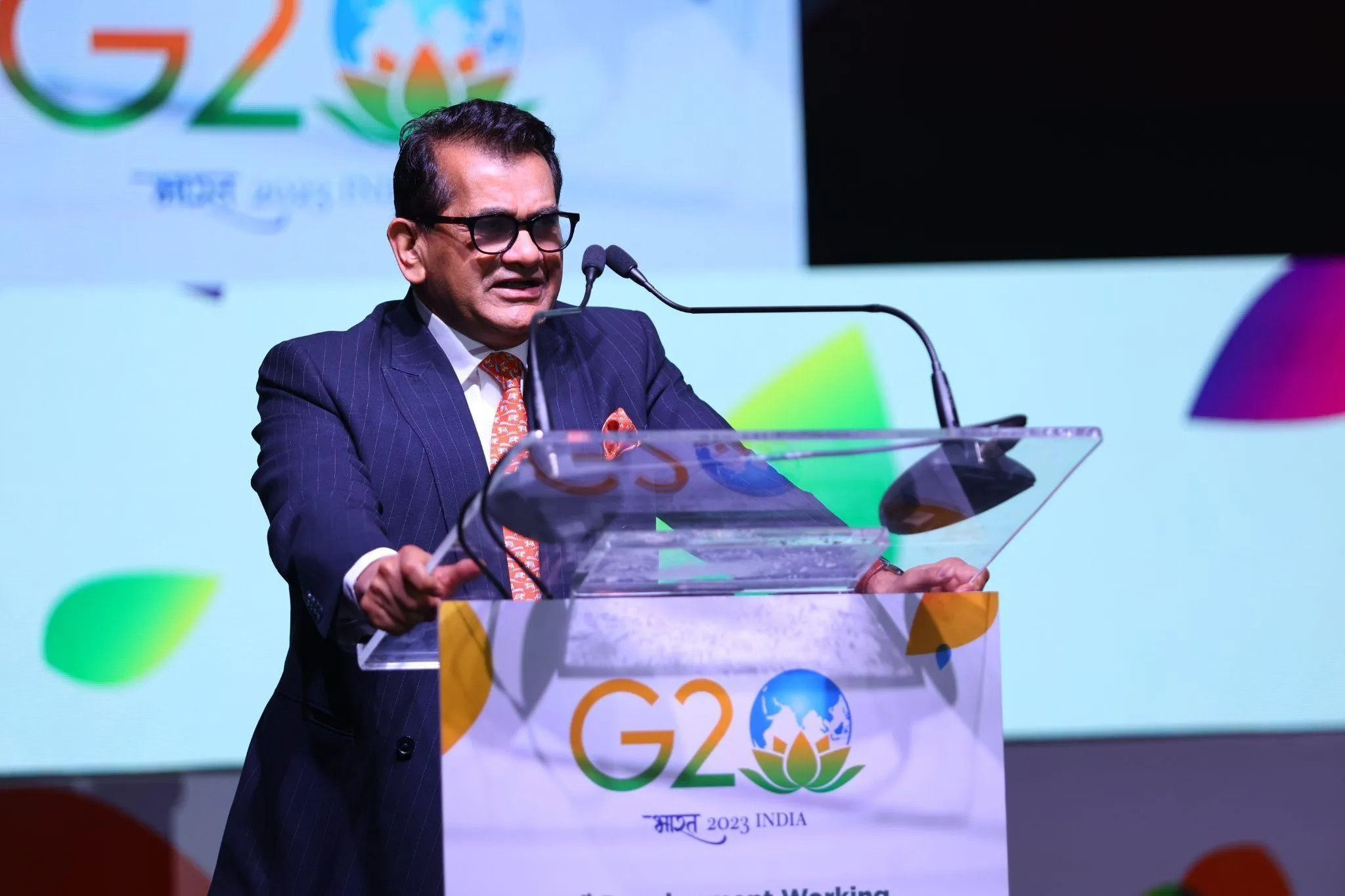
On 13 December 2022, the Indian G20 Secretariat, in collaboration with the Ministry of External Affairs, the Observer Research Foundation (ORF), the UN Office of the Secretary-General's Envoy on Technology, and the United Nations Conference on Trade and Development, hosted a side event on "Data for Development: Role of G20 in Advancing the 2030 Agenda." This event served as a preview for further discussions on data for development in the G20 during India's presidency.
More than 600 people from various sectors attended the event, including the government, intergovernmental organisations, academia, civil society, and businesses. This included over 300 students from Indian universities like IIT Bombay, St. Xavier’s College, Symbiosis International University, and Jai Hind College, among others.
The G20, a group that includes both developed and developing nations, has the unique advantage of enabling the sharing of knowledge, experiences, innovation, and technology between its member countries. India has used data to improve governance and address healthcare, nutrition, food security, women's participation, education, digital payments, and digital financial inclusion across the country.
During the G20 Leaders' Meeting in Bali last month, Prime Minister Narendra Modi stated that “data for development will be a key focus” of India's G20 presidency. Rajeev Chandrasekhar, Union Minister of State for Electronics and Information Technology, who also steers India’s Skill Development and Entrepreneurship ministry as a minister of state, emphasised the importance of data-driven interventions for societal well-being and inclusive growth. Under these broad commitments and aspirations, the side event was part of a larger effort under India’s G20 presidency to recognise the central role of data in these areas.
Amitabh Kant, India’s G20 Sherpa, suggested that governments should share data in a granular form to inform policy decisions better and facilitate accurate analysis of the impact of different policies. Such data sharing was particularly crucial in the context of international cooperation, as it would allow governments to assess the impact of policies on different countries and regions more accurately and to tailor their approaches accordingly. Her Majesty Queen Máxima of the Netherlands and Rajeev Chandrasekhar reiterated the crucial role of data in social development as it helps to inform policy and decision-making and can be used to assess the effectiveness of different approaches to addressing social challenges. By collecting and analysing data, governments, NGOs, and other organisations can better understand the root causes of social issues, identify potential solutions, and track progress over time.
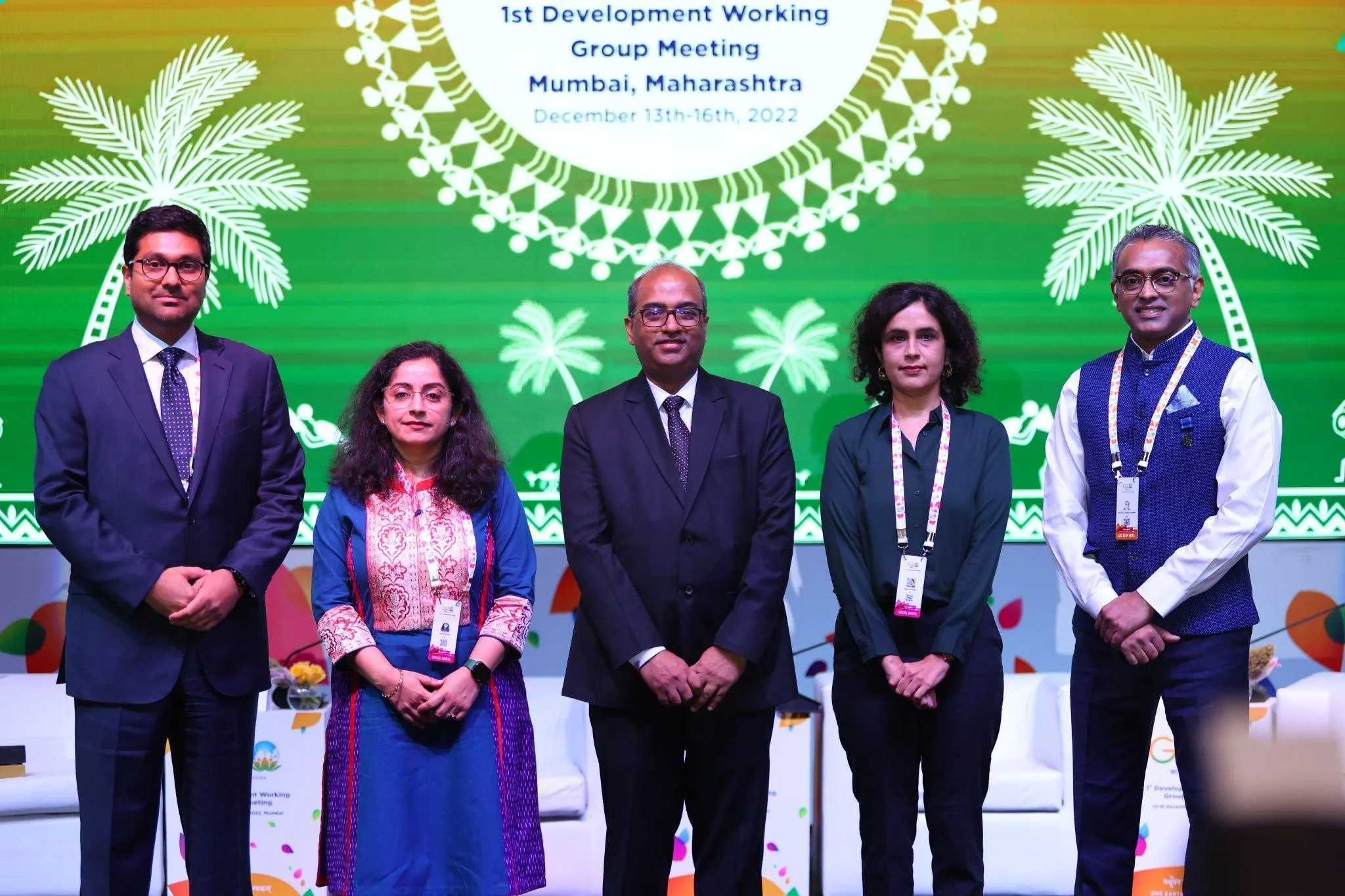
Nandan Nilekani, Non-Executive Chairman, Infosys; former Chairman, Unique Identification
Authority of India (UIDAI) highlighted the impact of new technologies like the India Stack, a set of digital technologies and infrastructure developed in India, to facilitate the delivery of government and financial services to citizens. It includes various services and tools, such as a unique identification system (Aadhaar), a digital locker system for storing and sharing personal documents, and an electronic payment platform (UPI).
The side event also featured two plenary sessions focusing on “Rejuvenating legacy systems: From data to public value intelligence” and “Models for the future: Leveraging IoT, Big Data and AI for the SDGs”. The plenary sessions highlighted several core principles which include:
- Making larger volumes of data publicly available and accessible to researchers, start-ups, and solution providers to enable more effective policymaking.
- Overcoming the siloed nature of data through collaboration.
- Providing high-quality, simple, and easy-to-understand data in real-time rather than aggregated form.
- Continuing to invest in emerging technologies and specialised tools that can analyse datasets in creative and novel ways.
- Encouraging a spirit of constructive competition among stakeholders in data generation and using the ecosystem to enhance data-related outcomes for development.
- Thinking big, scaling-up data for development initiatives, and moving from pilots to population-scale solutions.
- Fostering a culture of technological experimentation and innovation.
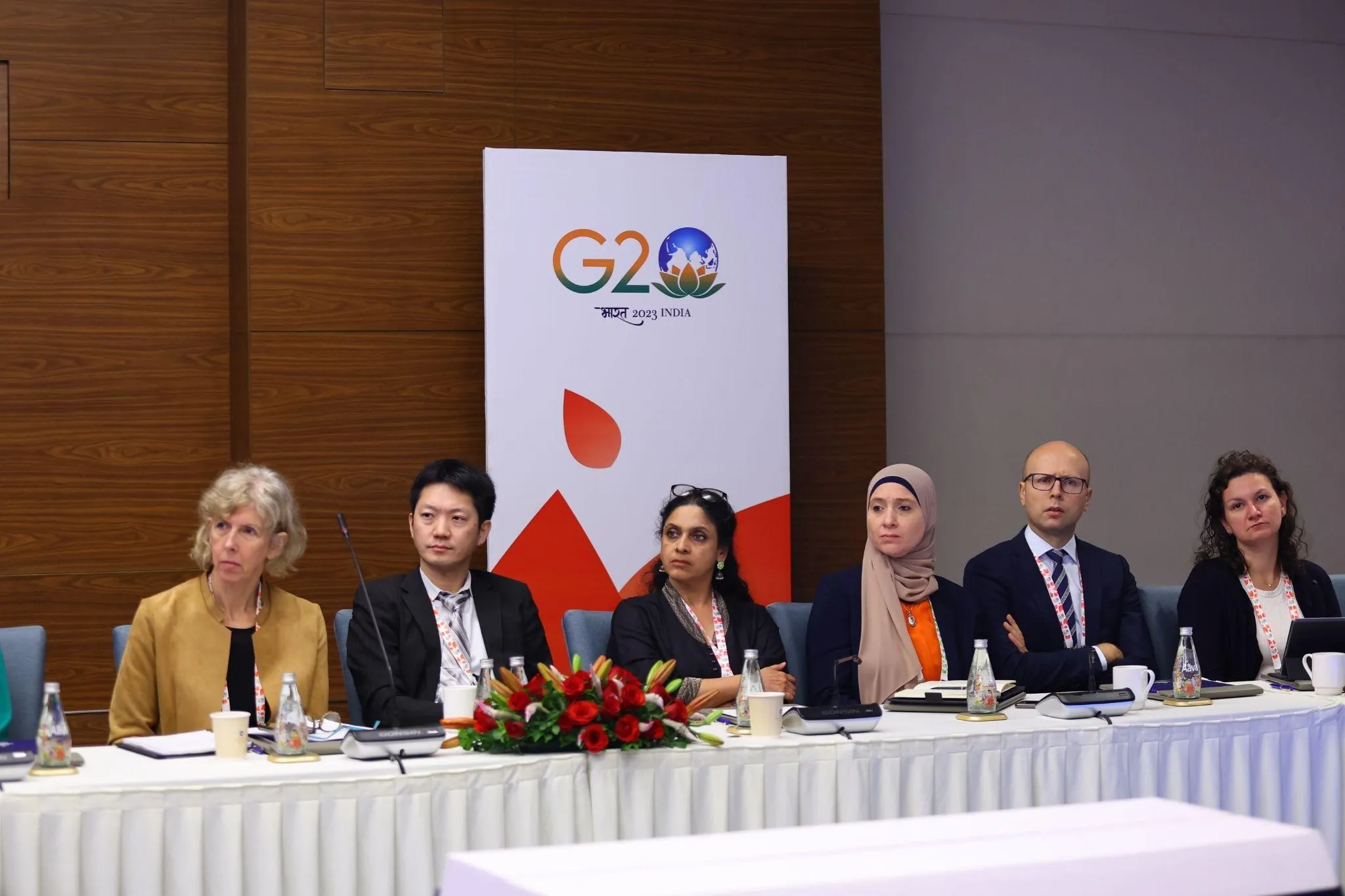
The discussants emphasised the need for sensitive frameworks to create open repositories where national datasets can be shared, data standards harmonised, and the portability of data and interoperability of systems enhanced. They also highlighted the importance of strengthening mechanisms for transnational data sharing and how G20 is well-suited to establish frameworks for this purpose. Ultimately, the data regulations should aim to serve the greatest good for the maximum people and encourage reciprocity so that countries share and benefit from development data.
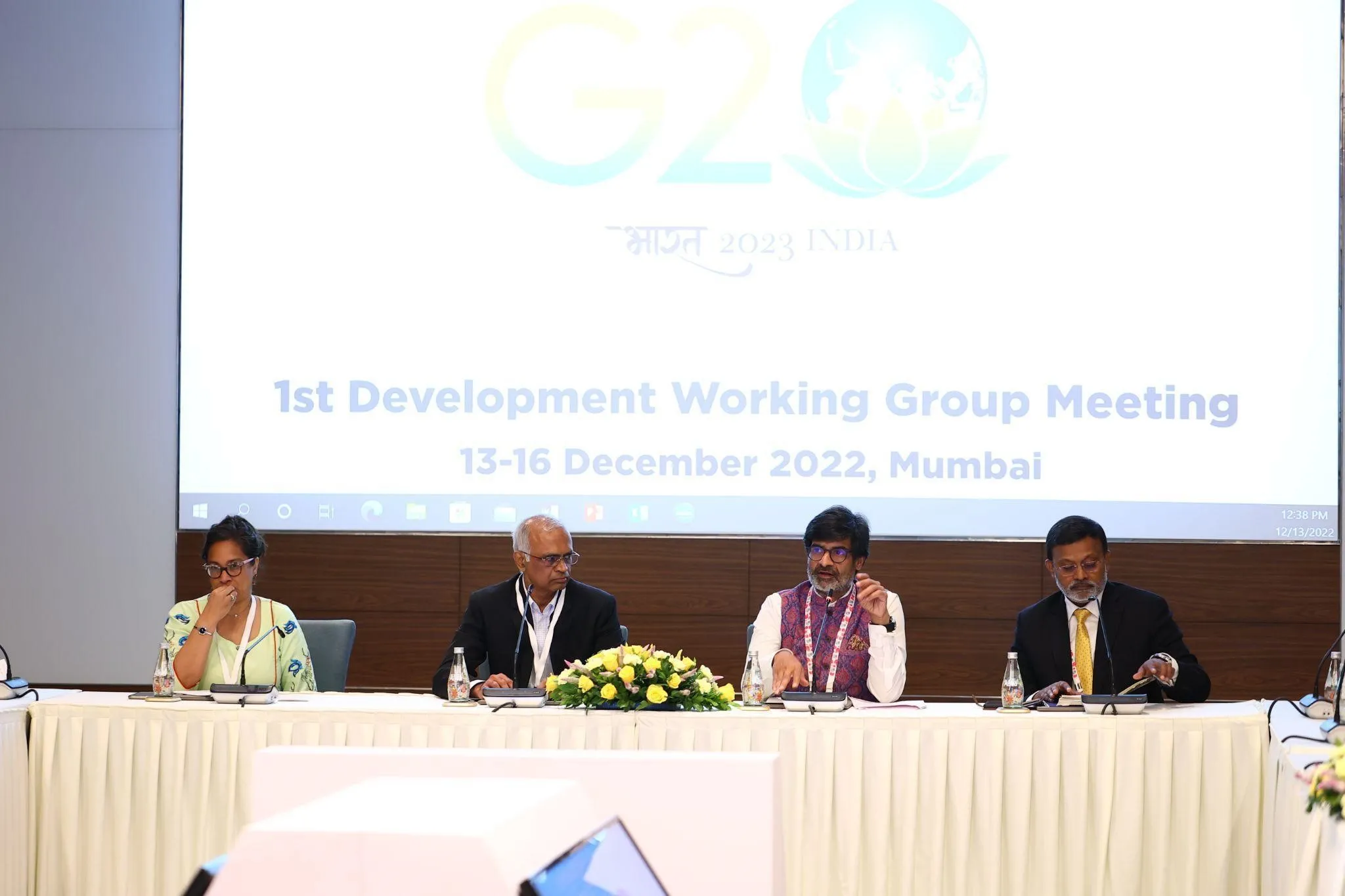
The first breakout session focused on the role of governments and international organisations in facilitating the growth of data for development. India has consistently and robustly engaged in stakeholder consultations in designing and implementing tech stacks, including Aadhaar, UPI, financial inclusion, and COVID-19 vaccination. The G20 can facilitate cooperation between developed and developing countries to ensure that no one is left behind in the digital revolution. Collaboration is key to this effort. Governments must consult with the private sector and youth to facilitate such collaboration.
The G20 should develop a shared understanding of sensitive and non-sensitive data. G20 nations will benefit enormously if India’s presidency initiates progress on data classification. Using data for development will help map vulnerable groups and also monitor their progress over time.
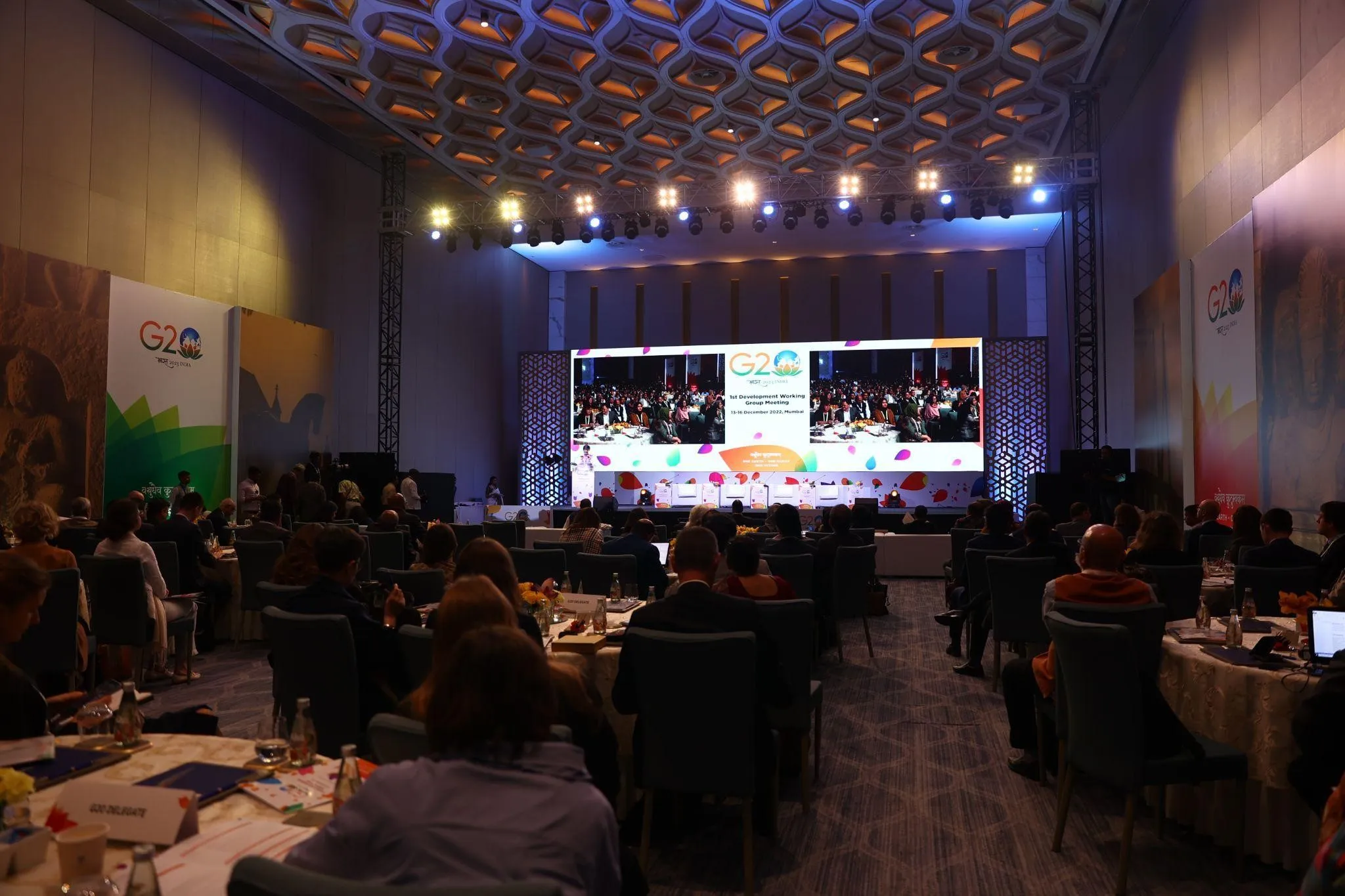
The second breakout session highlighted the role of civil society, academia, philanthropic organisations, the private sector, and entrepreneurs, to catalyse data for development. People, processes, and finance are necessary to use data effectively as the key to digital public infrastructure. However, these things take time, and democracies face unique challenges in this regard as election seasons often take priority. Here, the philanthropic sector can play a role in building digital public infrastructure. Data is abundant, but what is needed is to make it harvestable. Philanthropic organisations can collect and digitise metadata, macro data, and microdata at the grassroots level, particularly microdata. The "data for good" initiative can help communities and government agencies understand which policies are working and which are not, providing an example of data empowerment in action.
Well-organised data and maps can aid in policy making and help make informed decisions on pressing issues like climate change. The challenge is to institutionalise this approach, making data science interdisciplinary. Data quality is vital and can be a powerful tool for empowering communities. The G20 can consider forming an alliance or partnership with countries using drones for civilian purposes and learning from each other. It is crucial that data serves every community and does not exclude any.
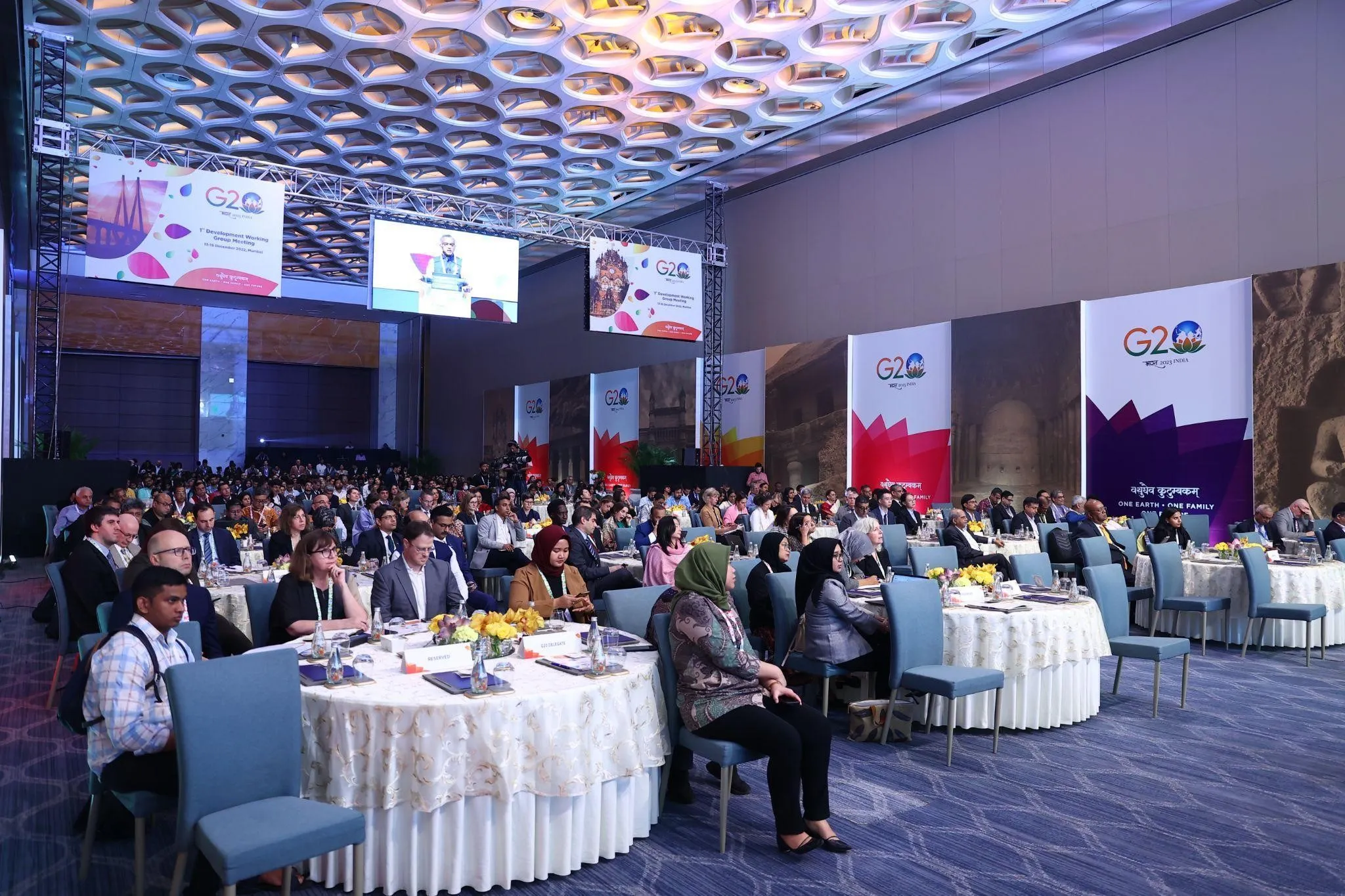
The side event ended with closing remarks from Ambassador Amandeep Gill. He further emphasised how data can be a powerful tool for advocacy and social change, as it can illustrate the extent and impact of social issues and raise awareness about the need for action. By highlighting the realities of social issues through data, organisations and individuals can work to mobilise support for change and to advocate for policies and programmes that address these issues.
This report has been compiled by Sauradeep Bag, Associate Fellow, ORF
The views expressed above belong to the author(s). ORF research and analyses now available on Telegram! Click here to access our curated content — blogs, longforms and interviews.



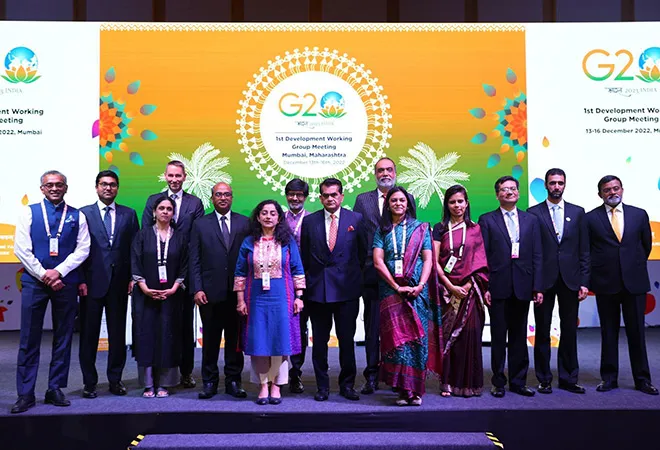






 PREV
PREV

